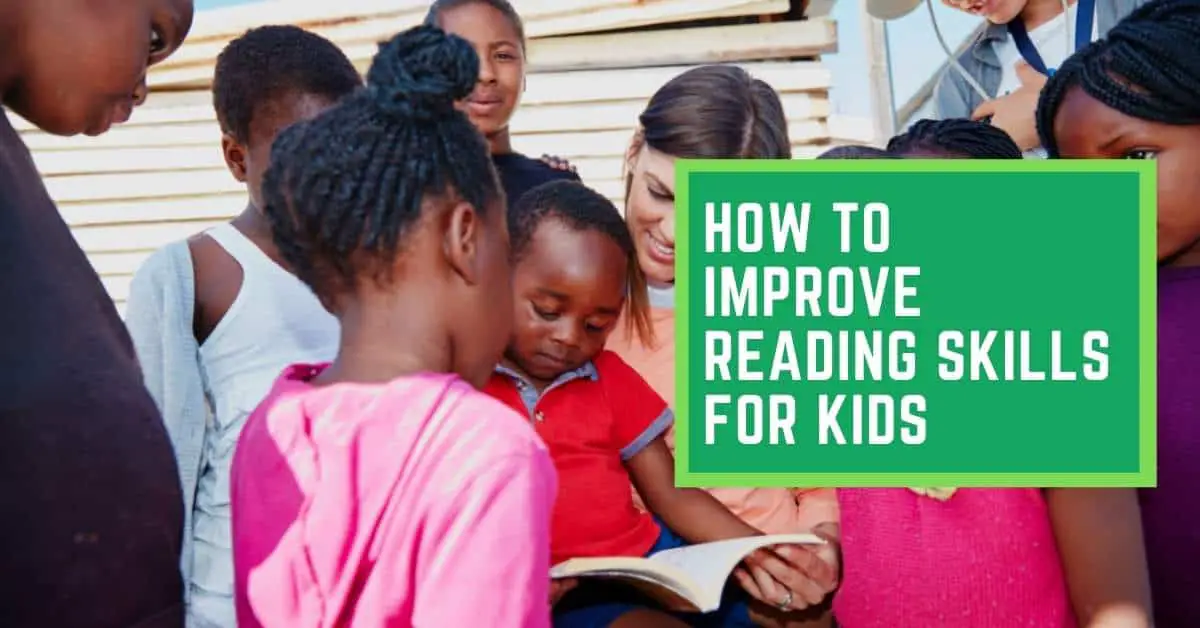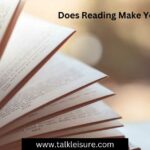Reading is a critical skill that can open up a world of knowledge and creativity for children. With the right approach, it’s possible to help kids learn to read at an early age in an enjoyable way.
It’s never too early – or too late – to start reading.
In fact, research has shown that babies as young as six months old can benefit from being read to, and that adults who continue to read regularly throughout their lives tend to have better mental skills and longer lifespans.
Most kids start reading around the age of four or five. But some kids don’t start until they’re seven or eight years old. There’s no one right answer to this question, since every child is different.
Some kids are ready to read at an early age, while others need more time to develop their skills.

Why do children begin reading at different ages?
Reading is an invaluable life skill, but when and how children begin reading can vary greatly.
Parenting styles, home environments, and even natural born talent can all play a part in when a child begins to read. Early literacy programs also introduce different teachings and tools to help children learn to read sooner, like phonics or phonemic awareness. The amount of time a child is exposed to written word before they start actually reading it can have an impact on their learning ability. While some kids may pick up reading at age four, others may wait until six or later.
Ultimately the pace of development cannot be rushed – each child will find the best time for them to start reading depending on the varied set of factors mentioned above.
Is it useful for parents to encourage early reading for their children?
Yes, it’s very useful for parents to encourage early reading for their children!
Though some children may need extra help and guidance as they learn to read, research has shown that there are numerous benefits of reading at an early age. Being exposed to books in a fun and enjoyable way helps kids develop language skills, builds their confidence, encourages creativity and imagination, and even boosts math abilities. Early readers tend to do better in school later on because they have higher levels of knowledge about the world around them.
Parents can create a positive learning environment by introducing books from an early age – even if your child isn’t quite ready to read yet. Reading aloud with your kids is a great way to bond and can spark conversations about the characters and stories. You can also provide access to educational materials, like computers or tablets, which can help build basic technology skills.
By encouraging early reading, parents can help their children develop a love for books that will stay with them for years to come!
What are the benefits of starting to read at an early age?
Starting to read at an early age can have many benefits for children.
The most obvious benefit is that it helps kids develop language and literacy skills that are essential for learning. Kids who are exposed to books from a young age tend to grow up with more knowledge about the world around them, which can give them a head start in school. Early readers also have higher levels of vocabulary and may even be better at decoding unfamiliar words.
Additionally, reading encourages creativity, imagination and critical thinking. It’s also a great way for children to learn about new cultures, explore different perspectives, and gain empathy and understanding for people from all walks of life.
Finally, reading is just plain fun! It can help kids escape into a world of their own, where they can explore and discover on their own terms. With so many different types of books available to choose from, there’s something for everyone – no matter what age!
05 strategies you can use to help kids to start reading at an early age.
1. Read aloud with your child:
Reading aloud is one of the most effective ways to help children learn to read at an early age. Reading together helps build language and literacy skills, boosts imagination and creativity, and can even spark conversations about the stories you’re reading.
2. Attend story time at the library or bookstores:
Story times provide a fun and interactive environment for kids to explore books without feeling overwhelmed or stressed out. Many libraries also offer special programs designed specifically for toddlers and young children that introduce basic concepts like letters or numbers in an enjoyable way.
3. Offer technology tools:
Educational apps, online games, websites, and other digital materials can help provide extra support when it comes to teaching kids to read. Many of these tools also provide an interactive, engaging environment for children that encourages learning and exploration.
4. Talk about books:
Discussing stories with your kids helps them develop a love for reading and encourages their curiosity about the world around them. Ask your child questions about what they’ve read or heard, or talk about characters or events in the story – this helps build comprehension skills and gives you insight into how they process what they’ve learned.
5. Visit bookstores often:
Visiting a local bookstore can be a great way to introduce kids to books without feeling too overwhelmed. Bookstores often have special sections geared towards young readers that offer age-appropriate materials that can help foster a love of reading. Plus, it’s a fun way to spend time with your family while discovering new stories together!
By using these strategies and working with your child at their own pace, you can help them learn to read at an early age and enjoy the many benefits that come along with it!
What is the best mechanism for starting the reading of a kid?
The phonics-based approach to teaching kids how to read is an effective and widely used method. This approach emphasizes the sounds of spoken language, and focuses on teaching children the connections between letters and their respective sounds. With this method, children learn how to decode words by sounding them out, starting with basic letter-sound combinations like “b” as in “bat” or “s” as in “sun.”
This approach is based on the idea that once a child learns the individual sounds associated with each letter, they can begin to blend these together to sound out unfamiliar words. For example, if a child knows that /b/ makes the sound for “bat” and /l/ makes the sound for “lion,” then they can use these sounds to read the word “blend.” This approach has been found to be effective in helping kids learn to read at an early age.
The phonics-based approach also helps children develop critical thinking skills, as they must be able to distinguish and recognize individual letter sounds in order to decipher words. With practice and support, this method of learning can help children become confident readers in no time!
Is there any harm in insisting kids start reading.
While it’s important for children to start reading at an early age, there is no harm in insisting that kids start reading as soon as they are ready and able. It’s important to remember that each child has their own individual learning style and pace, so it’s best to work with your child at their own level and comfort zone.
Reading should be fun and engaging for kids, so don’t pressure them or give them too much to handle at once. If a child feels overwhelmed or frustrated by what you’re asking of them, then it may be best to take a step back and try again later when they feel more comfortable. Additionally, take the time to celebrate small successes along the way – this will help motivate your child and keep them eager to learn more.
It’s also important to remember that there are other learning methods and strategies when it comes to teaching kids how to read. Depending on your child’s individual needs, you may find it beneficial to explore a variety of approaches until you find one that works best for them. By being patient and supportive, you can help your child learn to read in an enjoyable way.
Conclusion
Reading at an early age can have many benefits for kids, such as improved language and cognitive development, as well as increased knowledge and comprehension skills. By taking the time to introduce children to books in a fun and engaging way, you can foster a love of reading that will last them throughout their life. The phonics-based approach is one effective method for teaching kids how to read, but there are other methods available depending on your child’s individual needs. Be sure not to pressure your child and give them plenty of support along the way. With patience and practice, you can help your little one become a proficient reader who enjoys discovering new stories!











